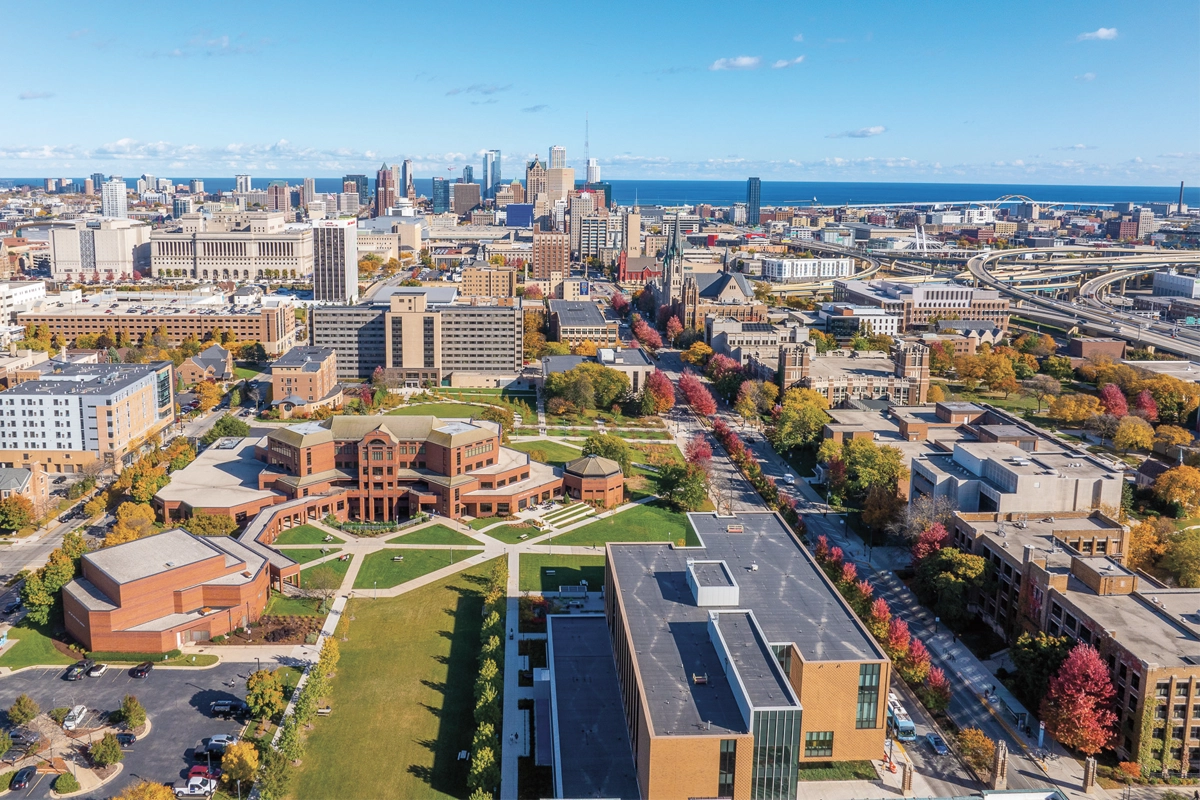If you want the best possible preparation for getting into medical school — and becoming a world-class physician — our Pre-Medicine program is a perfect place to start.
At Marquette, pre-medicine isn't technically a major. Rather, it's an intention that you plan to attend medical school. That means you'll choose a related major, such as biomedical sciences, biological sciences, biochemistry and molecular biology, or psychology, and we'll guide you along the way, making sure you're building a strong foundation for acceptance to med school. You’ll also be connected to a community of medical faculty and professionals who will help you discover potential career paths in the medical field.
And Marquette’s values-based curriculum means you’ll cultivate the tools you need to not only improve patients' health but also make their lives better.

Sensenbrenner Hall, College of Arts and Sciences
Our graduates go on to a wide variety of prestigious medical schools. Here’s where some of our recent graduates landed.

While you’re here at Marquette, preparing you for what’s next will be one of our top priorities. So, expect lots of learning by doing, connecting with others who share your passions, and reflecting on how you can Be The Difference.
With support from our Pre-health Advising team and our pre-medical honor society, you’ll be able to actively explore medicine by volunteering at clinics and hospitals, and shadowing doctors in a variety of specialty fields.
Though pre-med studies can be pursued through many majors, consider biomedical sciences internships and biological sciences internships as potential pathways to valuable experience for medical school applications.
If you’re interested in doing research as an undergrad, you’ll have plenty of chances to work with internationally respected researchers and their teams who are tackling some of society's most pressing medical problems.
Here are some of the things Marquette faculty and students are solving right now:
Become a people-centered leader guided by our Jesuit tradition. Join our E-Lead program sophomore year and you’ll complete a combination of leadership courses and experiences that prepare you to be the drivers of innovation for the common good. You’ll develop the skill set to generate innovative solutions and the mindset to reflect on the impact your work has on the world. Bonus: You’ll graduate with a concentration in leadership, too.
Expand your education with a semester abroad. Study program course work at prestigious universities around the world or volunteer in health care settings serving communities in need. Other international opportunities are available for pre-medical students through core courses, summer study, Global Brigades, language study, faculty-led programs or research.
A Marquette education equips students to thrive professionally and personally through overall student support, career preparation and an extended family that can't wait to meet you. But don't just take our word for it.
Zippia.com
The Wall Street Journal
The Princeton Review (private universities)
